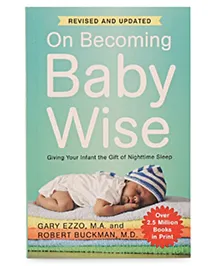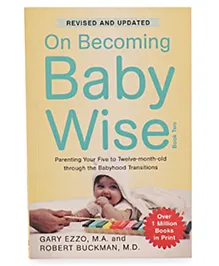11 Month Sleep Regression – Signs, Causes and How to Deal with It
- What Is the 11 Month Sleep Regression?
- What Are the Causes of 11 Month Sleep Regression?
- Signs of 11 Month Sleep Regression?
- How Long Does 11 Month Sleep Regression Last?
- How Can You Manage 11 Month Sleep Regression In Your Baby?
- When to Call a Doctor?
- FAQs
Sleep regression is one of the most challenging phases of early parenthood. It’s a time when your baby’s sleep patterns suddenly change, leaving you both exhausted and puzzled. As common as sleep regression is, it doesn’t make the situation any easier for parents who are desperately trying to catch some zzz’s. One such challenging phase is the 11-month sleep regression.
The journey of parenthood brings with it numerous unpredictable occurrences, and the eleven-month sleep regression is one of them. Just when you think you’ve got a handle on things, your child decides to switch up the game. This article aims to provide you with a comprehensive understanding of 11-month-old sleep regression, its causes and signs, and, most importantly, how to deal with it.
What Is the 11 Month Sleep Regression?
11-month sleep regression is a phase where your 11-month-old baby suddenly has a change in sleeping habits. Typically, this period is characterised by an inability to sleep, frequent night awakenings, or short and disrupted naps. It can be frustrating, especially since your baby was likely sleeping soundly before. This stage is a temporary but normal part of your child’s sleep development.
What Are the Causes of 11 Month Sleep Regression?
There are several factors behind the 11-month nap regression. Here are eight of the most common causes (1) (2):
1. Developmental Milestones
At this age, babies are undergoing major developmental leaps. They’re learning to walk, talk, and understand the world around them. These exciting developments can disrupt their sleep.
2. Separation Anxiety
The 11 month sleep regression separation anxiety is common. At this age, babies start to understand that their parents exist even when not in sight, leading to anxiety when separated.
3. Teething
Many babies go through a significant period of teething around 11 months. This process can be uncomfortable and disrupt their sleep.
4. Changing Nap Schedules
As your baby grows, their nap needs change. This transition can sometimes lead to disrupted nighttime sleep.
5. Increased Awareness
Your baby’s increased understanding of the world can lead to more distractions, making it hard for them to settle down to sleep.
6. Diet Changes
As your baby starts eating more solids, the change in diet can disrupt their sleep patterns.
7. Illness or Discomfort
Any discomfort, like a cold or ear infection, can disrupt your baby’s sleep.
8. Changes in Routine
Babies thrive on routine. Any significant change in their daily schedule can lead to sleep disruptions.
Signs of 11 Month Sleep Regression?
Identifying the signs of sleep regression can help you understand and manage the situation better. Here are fifteen signs that your baby may be going through the 11 month sleep regression (3):
- Increased fussiness, especially at bedtime
- Frequent night awakenings
- Short and disturbed naps
- Difficulty falling asleep
- Increased clinginess
- Changes in appetite
- Resistance to bedtime routines
- More night crying
- More daytime sleepiness due to disrupted night sleep
- Overactive behaviour during the day
- Increased separation anxiety
- Resistance to afternoon naps
- Mood swings and irritability
- Frequent wake-ups early in the morning
- Difficulty settling back to sleep after night awakenings
How Long Does 11 Month Sleep Regression Last?
Typically, the 11-month sleep regression lasts two to six weeks (4). However, the duration can vary for each child. This phase is temporary, and once your baby adjusts to their new skills and developments, their sleep patterns should return to normal.
How Can You Manage 11 Month Sleep Regression In Your Baby?
While the 11-month sleep regression can be a challenging time for both parents and babies, there are ways to manage it. Here are twelve strategies to help (5) (6):
1. Stick to a Routine
Maintaining a consistent bedtime routine can help your baby understand it’s time to sleep.
2. Comfort Your Baby
Comfort your baby if they’re feeling anxious. You could try a favourite toy or a calming lullaby.
3. Manage Teething Pain
If teething is causing sleep disruption, try to manage the discomfort with teethers or consult your paediatrician for pain relief options.
4. Feed a Balanced Diet
Ensuring your baby has a balanced diet can help prevent sleep disruptions caused by hunger.
5. Gradual Changes
Make any changes to the routine or diet slowly to help your baby adjust.
6. Promote Self-Soothing
Encourage your baby to self-soothe. This can be a skill as simple as finding their own pacifier.
7. Ensure a Sleep-Friendly Environment
Make sure the room is quiet, dark, and at a comfortable temperature.
8. Daytime Play
Encourage more play during the day to help burn off energy and promote better sleep.
9. Avoid Overstimulation
Overstimulating your baby before bed can make it harder for them to sleep. Keep activities calm and quiet as bedtime approaches.
10. Consider Sleep Training
Methods like the ‘cry it out’ method can be effective, but it’s important to research and choose a method that suits your family.
11. Patience
Remember, this phase is temporary. Stay patient and calm.
12. Seek Professional Help
If the sleep regression persists or causes severe distress, don’t hesitate to consult a sleep consultant or your paediatrician.
When to Call a Doctor?
While the 11-month sleep regression is normal, there are times when it’s best to call a doctor. If your baby’s sleep problems persist beyond six weeks, if they have difficulty breathing, or if they’re excessively sleepy during the day, it’s time to consult a paediatrician. Also, if your baby seems ill or in pain, it’s always best to seek medical advice.
FAQs
1. Does every child will have sleep regression at 11 months?
No, not every child will experience the 11-month sleep regression. While it’s a common phenomenon, some babies may not have noticeable changes in their sleep at this age.
2. Does an 11-month-old drop to one nap?
Some 11-month-olds may start transitioning to one nap a day, but it varies. Many babies don’t drop to a single nap until they’re 15 to 18 months old. Follow your child’s cues to determine what’s best for them.
he 11-month-old sleep regression can be a challenging phase, but with understanding, patience, and a few effective strategies, you can help your baby (and yourself!) get through it. Remember, it’s just a phase, and better sleep is on the horizon.
References/Resources:
1. Sleep Regression; Breastfeeding Support for Indian Mothers; https://www.bsim.org.in/breastfeeding-information-sleep-regression/
2. What happens at four months?; La Leche League GB; https://laleche.org.uk/what-happens-at-four-months/
3. Infant Sleep Regression: What Parents Need To Know; Cleveland Clinic; https://health.clevelandclinic.org/the-4-month-sleep-regression-what-parents-need-to-know
4. Is Baby Going Through Sleep Regression? What It Is and How To Help; Pathways.org; https://pathways.org/sleep-regression/
5. Understanding and Navigating Sleep Regressions; Penn Medicine Lancaster General Health; https://www.lancastergeneralhealth.org/health-hub-home/motherhood/the-first-year/understanding-and-navigating-sleep-regressions
6. Safe Sleep for Newborns; Hopeful Beginnings; https://www.hopefulbeginning.org/blog/safe-sleep-for-newborns/?gclid=CjwKCAjw_YShBhAiEiwAMomsEC5J88q5g24f6_wU3yMnyp4BdYEosaeHCvb-jet6GHD4shgLPS77bRoCBpAQAvD_BwE
Also Read:
How to Deal With Sleep Regression in Babies
12 Month Sleep Regression
Basics Of Baby Sleep: 10 To 12 Months
Was This Article Helpful?
Parenting is a huge responsibility, for you as a caregiver, but also for us as a parenting content platform. We understand that and take our responsibility of creating credible content seriously. FirstCry Parenting articles are written and published only after extensive research using factually sound references to deliver quality content that is accurate, validated by experts, and completely reliable. To understand how we go about creating content that is credible, read our editorial policy here.



















.svg)


















